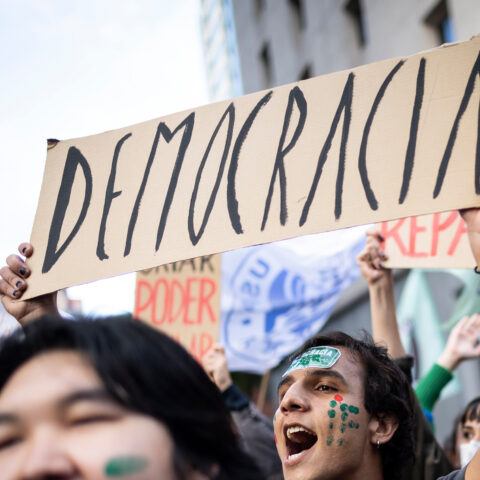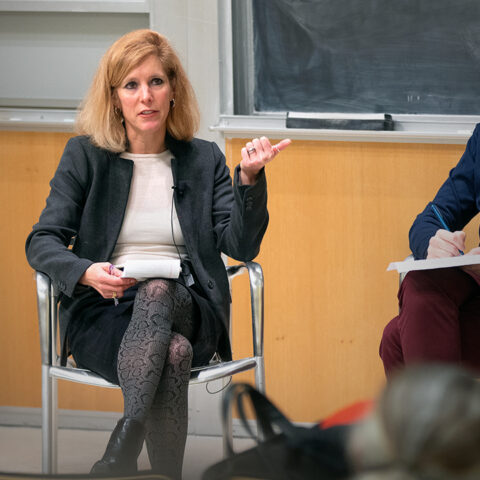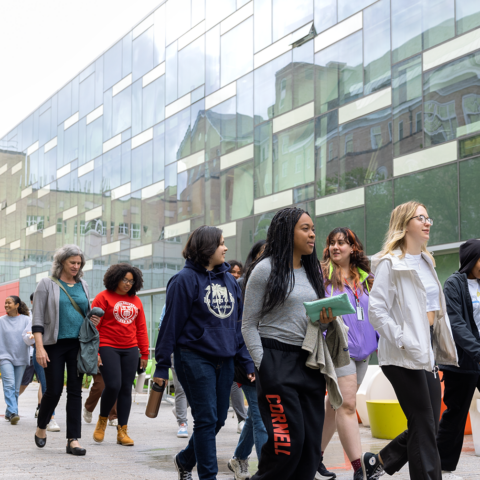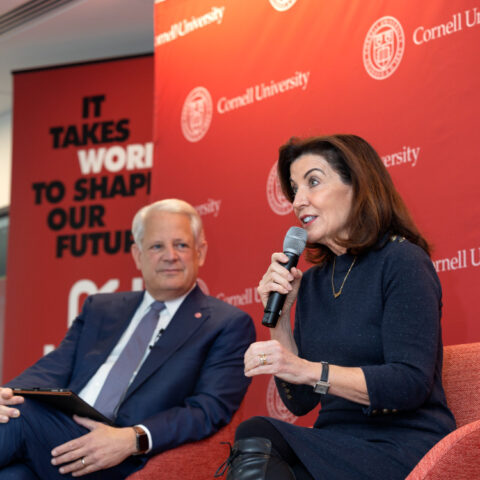Centers and Institutes

Center on Global Democracy
The Center on Global Democracy tackles the fundamental questions facing democracies, serving as a hub for research and learning to strengthen democratic institutions. Through targeted research and public engagement, the center aims to reverse democratic declines and bolster democracy worldwide.

Cornell Brooks School Tech Policy Institute
The Cornell Brooks School Tech Policy Institute provides new opportunities for students and researchers while building the Brooks School’s reputation as a national leader in the field. The Institute guides policy makers and policy students as they seek to understand the many ways technology touches our lives. It is developing a robust, interdisciplinary tech policy research agenda while fostering deeper collaborations with units across Cornell.

Cornell Health Policy Center
Cornell Health Policy Center (CHPC) is a partnership between the Weill Cornell Medical College and the Brooks School of Public Policy that serves as the locus of health policy impact, research, and training at Cornell.
The Center brings together the strong cadre of health policy researchers across Cornell to pursue the mission of using evidence to shape effective health policy at the federal, state, local, and organization levels.

Cornell Population Center
The Cornell Population Center is Cornell’s intellectual hub for demographic research and training. Faculty and students focus on families and children, poverty and inequality, health behaviors and disparities, and immigration and diversity. Their work is founded on an understanding of family processes, policy analysis, and translational research.

Cornell Program in Infrastructure Policy
Educating the next generation of infrastructure leaders. The Cornell Program in Infrastructure Policy (CPIP) in the Cornell Jeb E. Brooks School of Public Policy is focused on improving the delivery, maintenance, and operation of physical infrastructure. This is accomplished through dedicated teaching, research, and outreach efforts in infrastructure policy.

Governance and Local Development Institute
The Governance and Local Development Institute (GLD) is a research institute based at both the Cornell Brooks School and at the University of Gothenburg, Sweden.
GLD’s work is centered around answering a fundamental question: why do some communities succeed in providing secure environments, quality education, adequate healthcare, and other factors that foster human development, while others face challenges in doing so?

Institute of Politics and Global Affairs
The Institute of Politics and Global Affairs facilitates conversations and deepens understanding of important political and global events. The institute’s programs engage partners and the public and build connections among Cornell faculty, students, alumni and policymakers.
